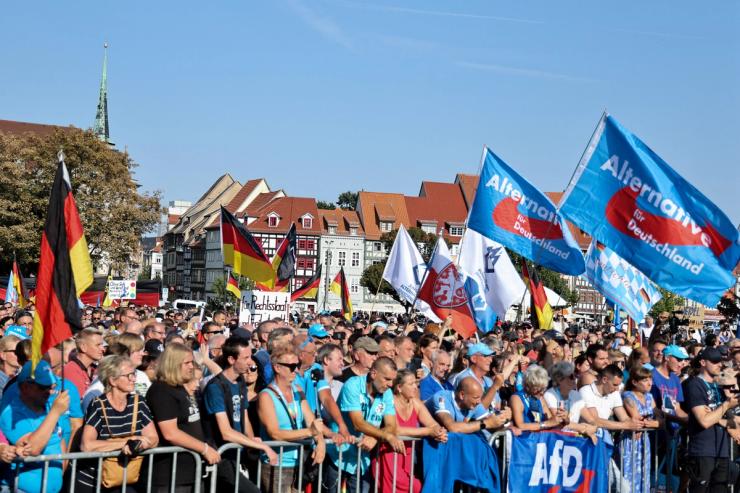The News
Germany’s far-right Alternative für Deutschland party surged in elections in two eastern states on Sunday.
The populist and anti-immigration AfD notched its first statewide win in Thüringia, while in Saxony, the AfD finished just behind the Christian Democratic Union, the center-right party of former Chancellor Angela Merkel.
Establishment left-leaning parties, especially those in German Chancellor Olaf Scholz’s center-left federal coalition, took an especially big hit at the hands of the right. In both states, the AfD doubled the vote share of the coalition parties combined, threatening to further destabilize their already-fragile alliance.
Without a majority on its own, though, the AfD won’t be able to form a government in either state without help from other parties, who have vowed not to work with the AfD.
The elections also saw the rise of a far-left populist party, the Bündnis Sahra Wagenknecht, which was just formed in January and campaigned in part on ending aid to Ukraine. The party is now set to hold more seats in both state parliaments than any of the federal coalition parties.
Know More
Once considered a fringe party, the AfD has made headway in the formerly communist east following years of economic stagnation and deepening hostility toward immigrants. Despite fewer migrants settling in eastern Germany in general, many voters there believe Berlin has put too much money into asylum and refugee programs instead of local economic development, according to The New York Times.
Anti-immigration sentiment has only increased following a mass stabbing at a street festival last month, prompting Scholz to resume a suspended program to deport migrants convicted of crimes.

